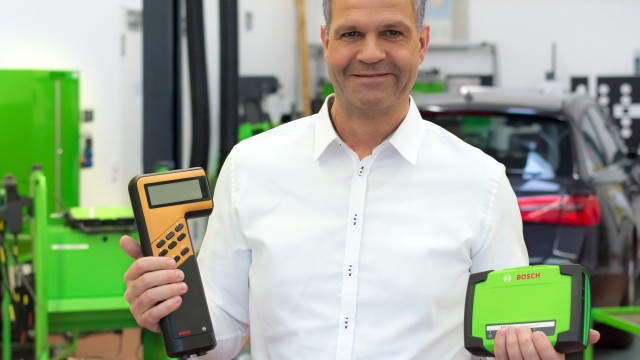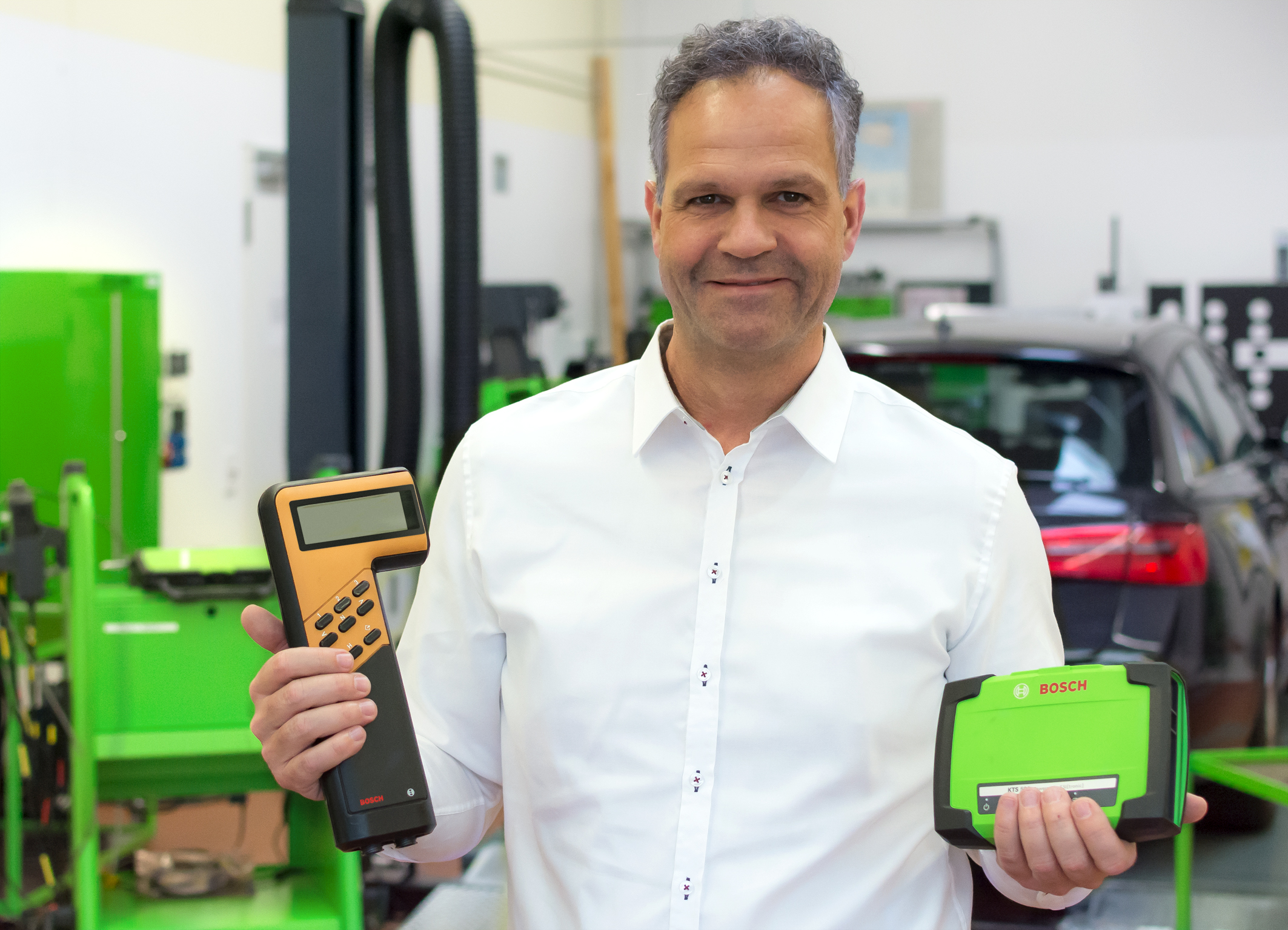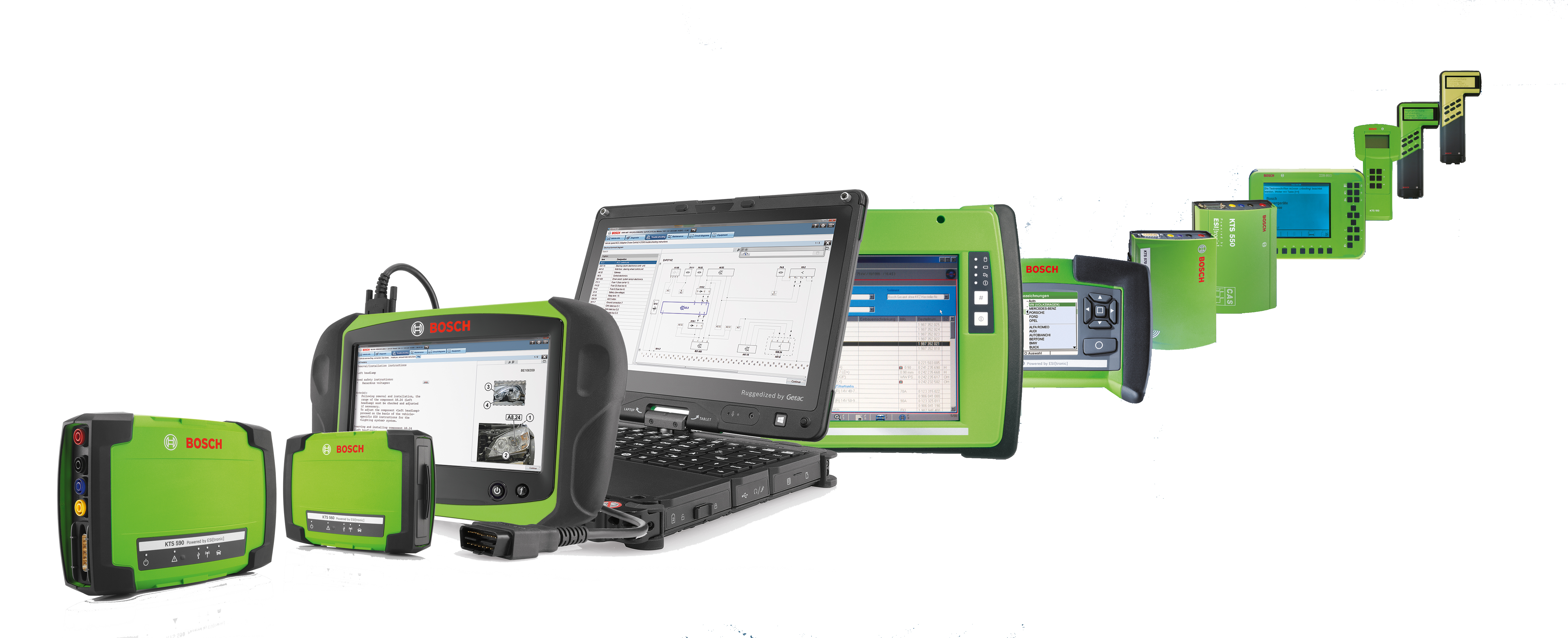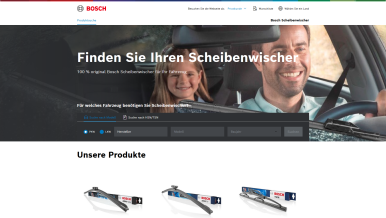Karlsruhe/Plochingen (Germany) - Back in 1988, Bosch KTS 300 – the first diagnostic tester – first allowed independent workshops to check electronic vehicle systems. Back then, Bosch named it KTS or “Klein-Tester-Serie”, which is German for series of small testers. The name prevailed down to the present day. Modern diagnostic testers are still called KTS. “Ever since the company was first founded, the Bosch has been a name standing for development competence, technical quality and reliability. 30 years ago, we were among the first companies also starting to meet these requirements in the field of control unit diagnostics,” Oliver Frei, Regional President Europe at Bosch Automotive Service Solutions, says thus describing the motivation driving continuous further development of KTS diagnostic testers. “We have always aimed on increasing efficiency and effectiveness of everyday work at workshops by means of our diagnostic testers and modern software. Diagnostic solutions fit for the future of workshops – that’s what’s still driving us,” Frei continues. Consequently, the 30-year success story of Bosch diagnostic testers will go on in future as well – thanks to optimized control unit diagnoses and new generations of KTS testers providing future-oriented hardware solutions.
The Mobility Aftermarket division (MA) provides the aftermarket and repair shops worldwide with modern diagnostic and repair shop equipment and a wide range of spare parts – from new and exchange parts to repair solutions – for passenger cars and commercial vehicles. Its product portfolio includes products made as Bosch original equipment, products developed in-house and specifically manufactured for the aftermarket, as well as services. About 16,000 associates, as well as a global logistics network, ensure that spare parts reach customers quickly and on time. MA supplies testing and repair-shop technology, diagnostic software, service training, and information services. In addition, the division is responsible for the “Bosch Service” repair-shop franchise, one of the world’s largest independent chains of repair-shops, with some 13,000 workshops, and more than 1,000 “AutoCrew” partners in over 100 countries. In addition, with Bosch Classic, MA supports owners of classic cars with a wide range of spare parts and services.
Additional information can be accessed at www.boschaftermarket.com
The Bosch Group is a leading global supplier of technology and services. It employs roughly 429,000 associates worldwide (as of December 31, 2023). The company generated sales of 91.6 billion euros in 2023. Its operations are divided into four business sectors: Mobility, Industrial Technology, Consumer Goods, and Energy and Building Technology. With its business activities, the company aims to use technology to help shape universal trends such as automation, electrification, digitalization, connectivity, and an orientation to sustainability. In this context, Bosch’s broad diversification across regions and industries strengthens its innovativeness and robustness. Bosch uses its proven expertise in sensor technology, software, and services to offer customers cross-domain solutions from a single source. It also applies its expertise in connectivity and artificial intelligence in order to develop and manufacture user-friendly, sustainable products. With technology that is “Invented for life,” Bosch wants to help improve quality of life and conserve natural resources. The Bosch Group comprises Robert Bosch GmbH and its roughly 470 subsidiary and regional companies in over 60 countries. Including sales and service partners, Bosch’s global manufacturing, engineering, and sales network covers nearly every country in the world. Bosch’s innovative strength is key to the company’s further development. At 136 locations across the globe, Bosch employs some 90,000 associates in research and development, of which nearly 48,000 are software engineers.
Additional information is available online at www.bosch.com, www.iot.bosch.com, www.bosch-press.com.






![Bosch adds a package for material handling vehicles to its ESI[tronic] Evolution ...](https://www.bosch-presse.de/pressportal/de/media/dam_images/pi11812/b47f8cbe_98220_img_w386.jpg)

